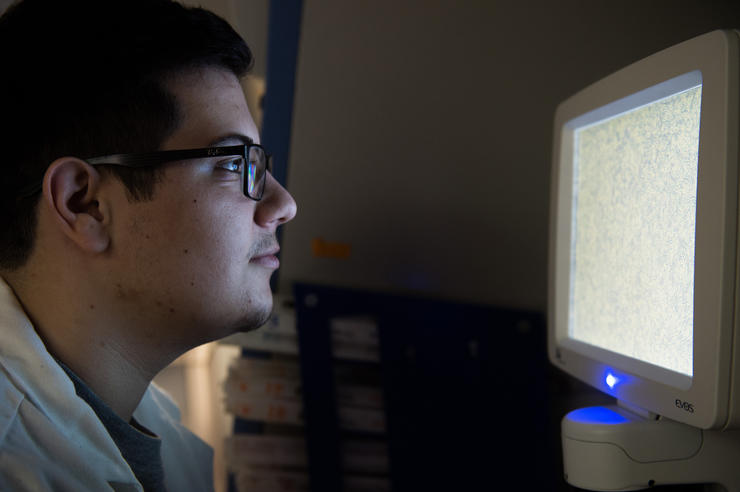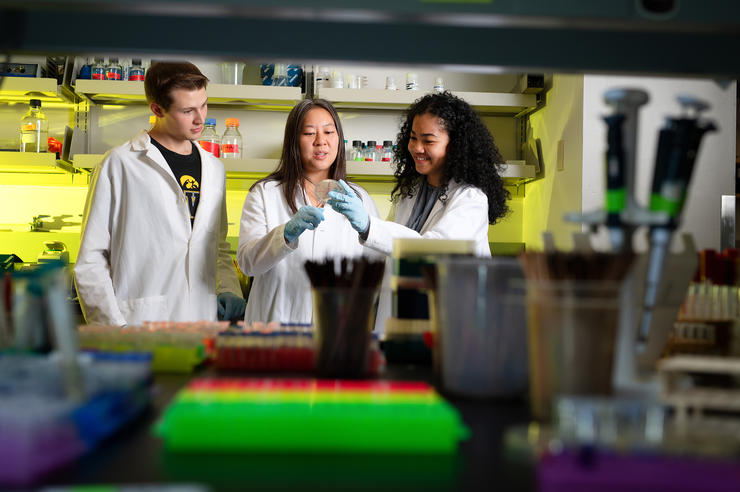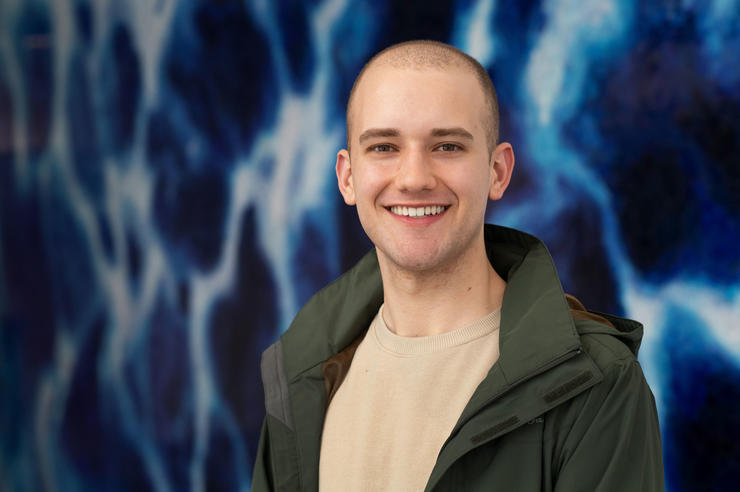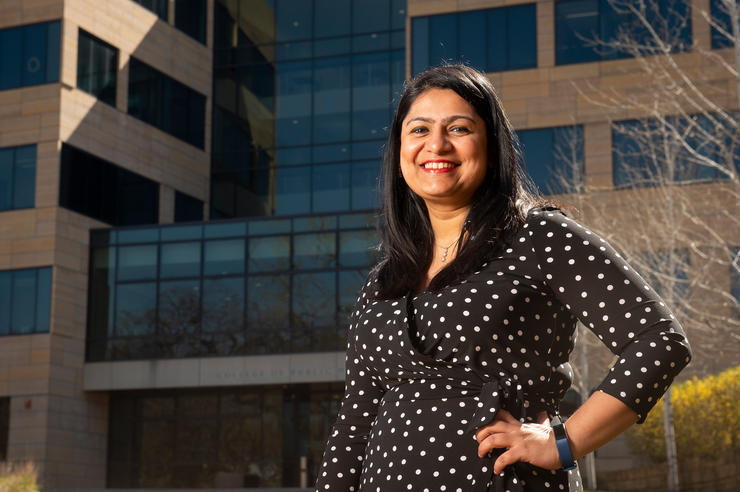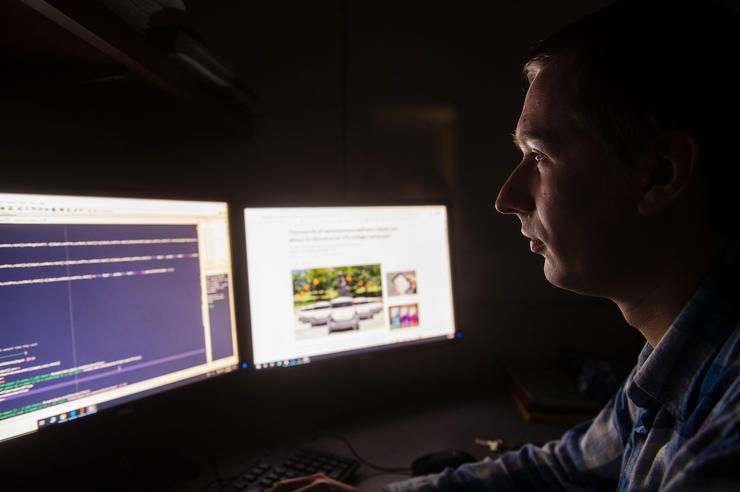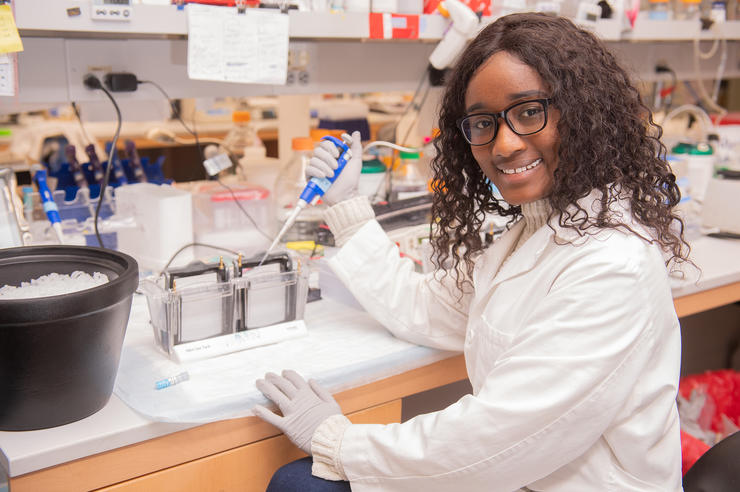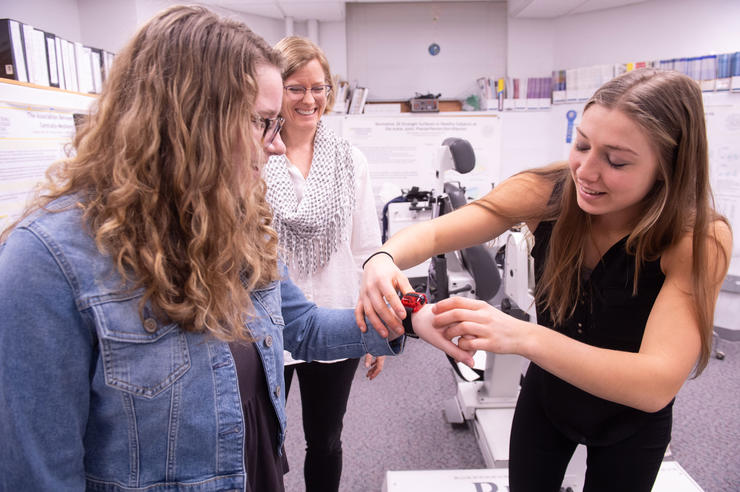Giving relief to patients with chronic wounds
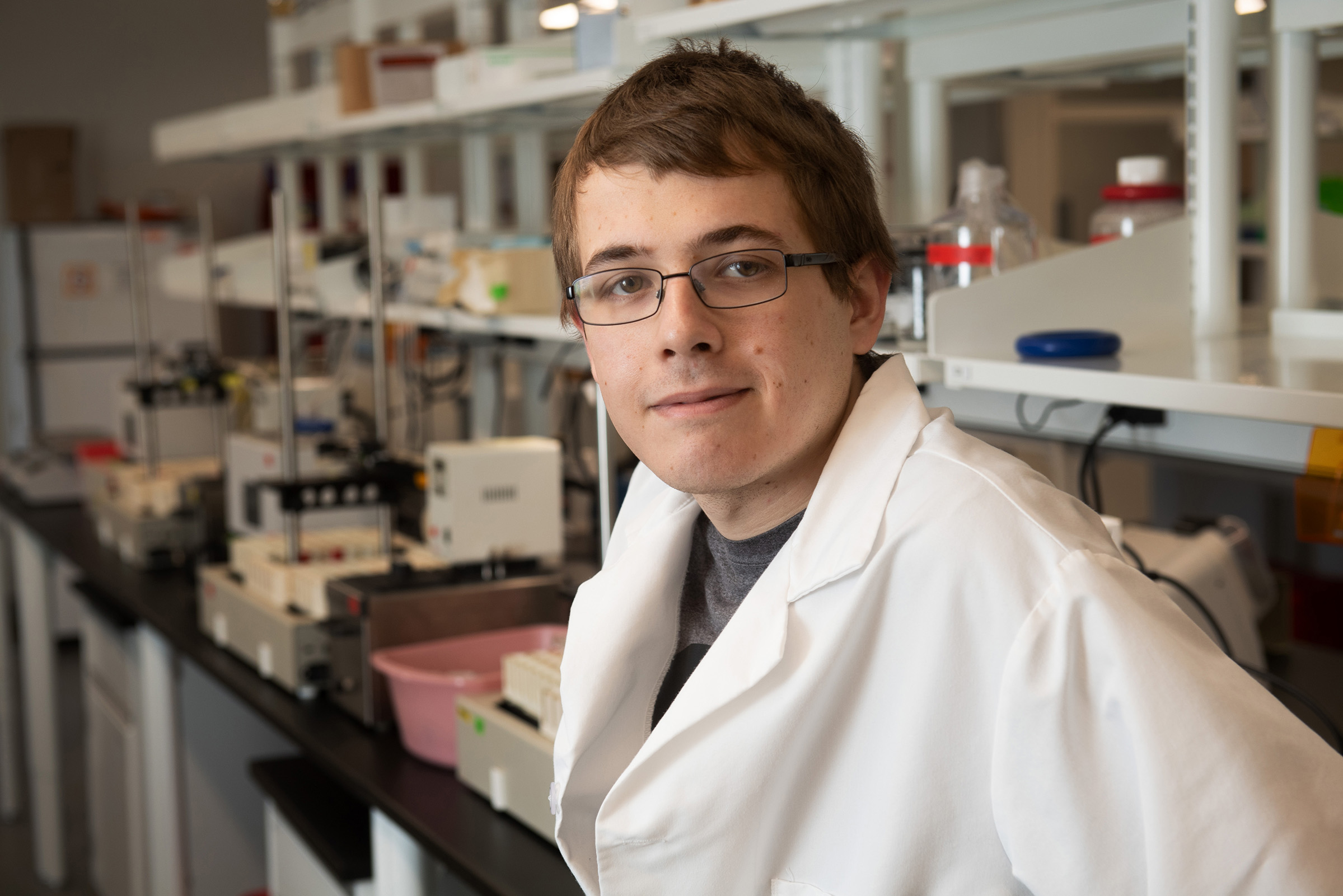
It’s estimated that 6.5 million Americans suffer from a chronic wound—a wound that does not heal in a normal timeframe, generally three months. These slow-healing wounds can be painful, and current methods to apply pain relief products to the site can cause additional discomfort.
Jackson Russo, a third-year pharmaceutics PhD student in the University of Iowa College of Pharmacy, is hoping to change that.
“When we think about providing a prolonged pain relief product to a wound, we typically think of gels that you apply and spread into the wound site,” Russo says. “That’s not what you want if you’re suffering a painful, sensitive wound for a long time. It just adds pain to the process.”
The St. Louis native is working in Nicole Brogden’s lab examining whether temperature-sensitive polymers can be used to provide prolonged pain relief in a manner that is more comfortable for patients and more convenient for care providers.
“This class of polymers is cool because it transitions from a liquid at low temperatures to a gel at higher temperatures,” Russo says. “This is interesting because you can apply something as a liquid and have it form a gel, which provides a longer release mechanism for drugs.”
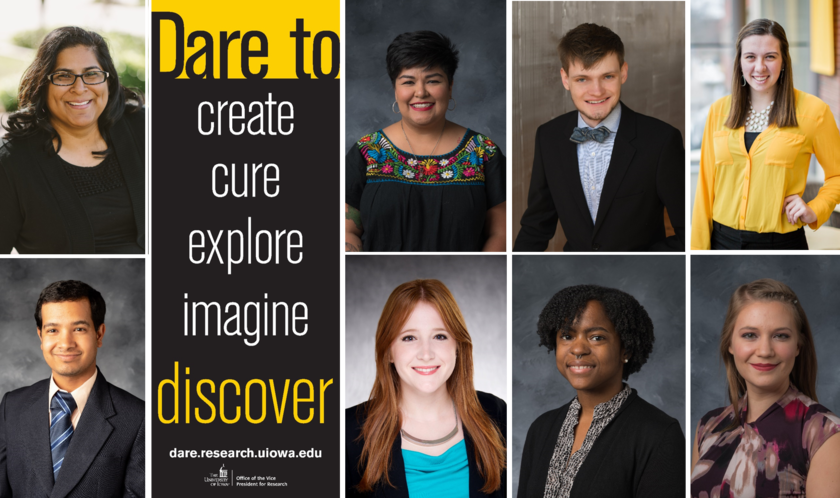
Jackson Russo is one of 52 students featured in the University of Iowa’s Dare to Discover campaign highlighting researchers across campus.
The advantage of applying a liquid to a wound such as a diabetic ulcer or bedsore is that the product can spread and fill the space on its own without the need to actually touch the wound. Then, because wounds are warmer than the liquid, the liquid turns into a gel.
Contributing to the improvement of patient care is what drew Russo to pharmaceutical science—along with his love of chemistry. Brogden says this is apparent in his work.
“Jackson entered into the field of drug discovery and delivery for his graduate training because of a desire to use science as a means to improve human health,” Brogden says. “Even though his work does not directly involve clinical studies, he maintains a strong focus in his research toward improving treatment of disease.”
Russo says he appreciated the opportunity at Iowa to explore potential research opportunities.
“One of the big advantages of Iowa was being able to come in and not already know which lab I wanted to join. Some places require you to know that,” Russo says. “Here, they told me you get the first semester to visit different labs and do rotations, meet potential mentors, and get a sense of what you want to do.”
“Our research means we may be able to deliver pain relief to patients suffering from chronic wounds without having to go through a systemic administration method using medications such as opioids or other pain relief drugs that have well-characterized and well-known side effects, including dependency.”
Russo says he and Brogden, assistant professor in the Department of Pharmaceutical Sciences and Experimental Therapeutics and Division of Pharmaceutics and Translational Therapeutics, made a great initial connection and he was interested in the work she was doing. Along with her work using the temperature-sensitive polymers, she also studies better ways to deliver medicine through the skin using microneedles.
“Jackson has an innate scientific curiosity that is apparent in all of his research efforts, and this is a quality that really cannot be taught,’’ Brogden says. “When this is applied along with his analytical training as a chemist, Jackson has a combination of attributes that will make him an excellent scientist.”
Another reason Russo says he was drawn to Brogden’s work with chronic wounds was the opportunity to—in a small way—help decrease the use of opioids, a class of drugs that is used to relieve pain but can also have serious risks and side effects, including addiction. According to the Centers for Disease Control and Prevention, nearly 70% of deaths due to drug overdose in 2018 involved opioids.

The University of Iowa College of Pharmacy has collaborative practice partnerships with six family medicine clinics across Iowa. Because each of the six applied clinical sciences faculty members at the family medicine clinics across Iowa operate under unique partnerships, they are able to push the status quo.
“Our research means we may be able to deliver pain relief to patients suffering from chronic wounds without having to go through a systemic administration method using medications such as opioids or other pain relief drugs that have well-characterized and well-known side effects, including dependency,” Russo says.
As the in-lab research comes to an end, the next stage will be to conduct animal studies. As for Russo, he hopes his next step after graduating from Iowa will be to work in product development within the pharmaceutical industry back home in St. Louis.
Russo urges students thinking about pursuing pharmaceutical science to take advantage of every opportunity, even ones they don’t necessarily enjoy at first.
“You can learn something from every lab you’re in,” Russo says. “My undergrad physical chemistry lab felt so esoteric and far from practical application that while I was there, it didn’t feel like it would ever be useful to me. But having that exposure to a completely different field caused me to think in a completely different way, which is a really valuable skill to pick up on. The practical knowledge still isn’t something that I’m necessarily going to utilize, but the ability to adapt my way of thinking has been immeasurably valuable to my development as a scientist.”
Russo says his research involvement at Iowa equipped him with skills that will be valuable in his career, including scientific communication. He also says the collaborative learning environment at Iowa has been a good fit for him.
“Being able to see what everyone is doing and get exposure to these areas that are not remotely similar to what I’m doing is really interesting,” Russo says. “A lot of the research being done is in areas that I wouldn’t necessarily have thought of as pharmaceutics. The breadth of the research being done at Iowa has surprised me.”
